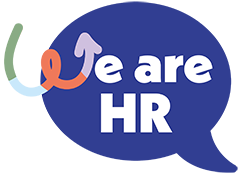Table Of Contents
Introduction
Earning a Chartered Institute of Personnel and Development (CIPD) qualification is a significant step for HR and Learning and Development (L&D) professionals. The CIPD designation demonstrates your expertise in people management and equips you to navigate the ever-evolving HR landscape. However, CIPD programmes often involve challenging assignments that can test your knowledge and application skills.
This comprehensive guide is designed to empower you, as an HR or L&D professional, to conquer your CIPD assignments with confidence. We’ll explore effective strategies to tackle HR, L&D, and People Management topics, providing you with the tools you need to excel in your CIPD qualifications.
Understanding CIPD Assignment Requirements
Before diving into your assignments, it’s crucial to gain a clear understanding of the expectations. Here are some key steps to ensure you’re on the right track:
- Deciphering the Assessment Criteria: Carefully analyse the assessment criteria for each assignment. These criteria outline the specific skills and knowledge you need to demonstrate to achieve a passing grade.
- Aligning Your Work with Learning Outcomes: Ensure your assignments directly address the learning outcomes outlined in your CIPD course. This alignment guarantees that your work showcases the knowledge and skills you’ve acquired.
- Utilising CIPD Resources Effectively: The CIPD offers a wealth of resources to support your learning journey. Take advantage of toolkits, case studies, and online resources specifically designed to aid with CIPD assignments.
Developing Strong HR & L&D Content
The core of your CIPD assignments lies in the quality of your content. Here’s how to ensure your work is informative, insightful, and demonstrates your expertise:
- Conducting Effective Research and Analysis: Ground your work in credible sources. Utilise academic journals, industry reports, and relevant CIPD publications to support your arguments and demonstrate a critical understanding of the subject matter.
- Demonstrating Critical Thinking and Problem-Solving Skills: CIPD assignments aren’t just about regurgitating information. Show your ability to critically analyse situations, identify challenges, and propose effective solutions relevant to HR and L&D practices.
- Showcasing Best Practices in People Management: Many CIPD assignments will focus on real-world people management scenarios. Highlight your knowledge of key models and frameworks, such as performance management models or talent development strategies, and demonstrate how you’d apply them in practical situations.
Crafting a Compelling CIPD Assignment
Even the most insightful content needs to be presented effectively. Here are some tips for crafting an assignment that grabs the attention of your assessors:
- Structuring Your Work for Clarity and Flow: Organise your assignment logically, utilising clear headings, subheadings, and transitions to guide the reader through your thought process. Employ strong writing techniques and a consistent referencing style, as outlined by the CIPD.
- Providing Evidence and Practical Examples: Don’t just tell; show! Strengthen your arguments by incorporating real-world examples, case studies, or relevant data to illustrate your points. This approach helps demonstrate your understanding and ability to apply knowledge in practical scenarios.
- Proofreading and Editing for Accuracy and Impact: Ensure your work is polished and free of grammatical errors or typos. Proofread meticulously and consider seeking feedback from a peer or mentor to ensure your writing is clear, concise, and impactful.
Additional Tips for Success
Juggling work and studies can be demanding. But with the right strategies, you can manage your time effectively and achieve success in your CIPD programme.
- Time Management Strategies for Busy Professionals: Develop a realistic study schedule and allocate dedicated time for researching, writing, and revising your assignments. Utilise time management tools and prioritise tasks effectively to optimise your study time.
- Seeking Guidance and Support from Tutors or Mentors: Don’t hesitate to seek help! CIPD tutors and mentors can provide invaluable guidance throughout your program. Leverage their expertise to clarify assignment requirements, brainstorm ideas, and receive feedback on your work.
- Harnessing the Power of Collaboration and Peer Review: Connect with fellow CIPD students. Form study groups, discuss course materials, and provide constructive feedback on each other’s assignments. Collaboration fosters a deeper understanding of the subject matter and can significantly enhance your learning experience.
Conclusion
By following these strategies and approaching your CIPD assignments with dedication and a thirst for knowledge, you’ll be well-equipped to excel in your program. Remember, CIPD qualifications are an investment in your professional development. Embrace the challenge, utilise the resources available, and confidently embark on your journey to becoming a CIPD-qualified HR or L&D professional.


